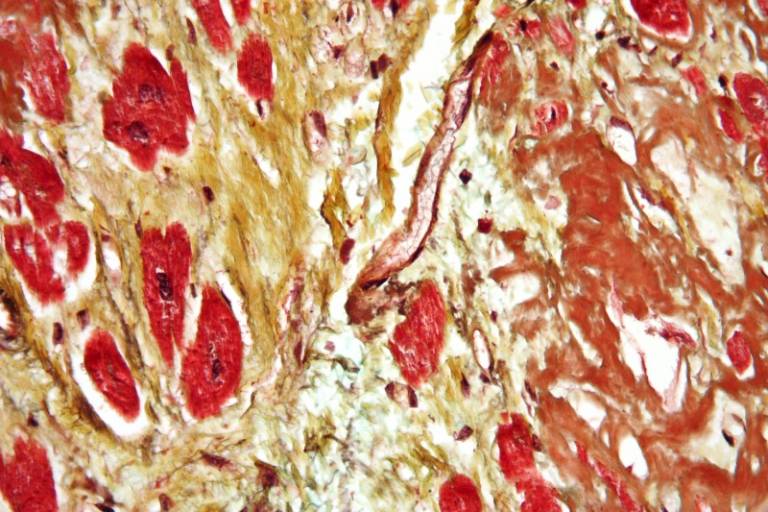Understanding the link between Covid-19 and cardiovascular diseases
12 June 2020
Scientists at UCL will lead two 'flagship' studies, announced by the British Heart Foundation (BHF) and the National Institute for Health Research (NIHR), which will investigate the link between Covid-19 and heart disease.

The studies, two of six UK-wide research projects launched by BHF and NIHR this week, aim to find ways of improving treatments for Covid-19 patients who also have cardiovascular disease.
A team led by Professor Aroon Hingorani (UCL Institute of Cardiovascular Science and UCL BHF Research Accelerator) with Prof Deborah Lawlor (University of Bristol), will investigate how genetic, demographic and lifestyle factors, as well as which pre-existing cardiovascular conditions and medications, affect susceptibility to Covid-19 and its severity.
The COVIDITY COHORT project will combine large sets of population health data – which people have consented to provide – with national data resources on SARS-CoV-2 infection and Covid-19 patient outcomes, and researchers will analyse the data jointly to provide more reliable answers.
Professor Hingorani said: “We hope to identify genetic and other risk factors for SARS-CoV-2 infection and COVID-19, and to understand why patients with cardiovascular and related diseases might be at higher risk.
"We hope to generate insights into the processes underlying COVID-19 susceptibility and severity and through this to identify those who might be more at risk, and to identify treatment strategies that work by protecting from infection or modifying the disease course.”
A separate UK-wide team led by Professor Bryan Williams (UCL Chair of Medicine and Director of the NIHR UCLH Biomedical Research Centre) will analyse hospital data from across the UK on the outcomes of people with Covid-19. It will look to see how cardiovascular disease and risk factors increase the risk of developing severe complications of Covid-19, and which acute cardiovascular complications are most common in patients who develop Covid-19. This UK project links with the European-wide CAPACITY-COVID project.
Professor Williams said: “Understanding the link between cardiovascular disease and Covid-19 will be crucial to the treatment of patients – in particular in any future waves of Covid-19. With cases of patients being hospitalised with Covid-19 falling we have a window in which to do this research and answer these questions in a way which has not been done before.”
In total six flagship research projects have been announced by BHF and NIHR, which will address urgent questions, such as who is most at risk, how best to manage Covid-19 infection in people with pre-existing cardiovascular illnesses, and how to prevent the longer term effects that the virus might have on people’s heart and circulation.
BHF Medical Director, Professor Sir Nilesh Samani said: “This virus may be a respiratory infection, but the most common underlying health conditions in those who die are cardiovascular.
"People with heart disease are at higher risk of dying from the virus and the risk for people with diabetes is two to three times higher than the general population. We are also rapidly learning that the virus can have devastating effects on the heart and circulatory system and increase the risk of heart attacks and strokes.
“By awarding flagship status to these projects, we hope to mobilise resources and research effort behind studies that have the best chance of swiftly improving care and saving lives. The speed at which we’ve done this is testament to the strength of UK cardiovascular science, and could lead to results within weeks.”
Links
- Professor Aroon Hingorani's academic profile
- Professor Bryan Williams' academic profile
- UCL Institute of Cardiovascular Science
- British Heart Foundation
- NIHR
Image
- 'Cardiac amyloidosis' on wikimediacommons CC BY 3.0
Media contact
Henry Killworth
Tel: + 44 (0) 7881 833274
E: h.killworth [at] ucl.ac.uk
 Close
Close

